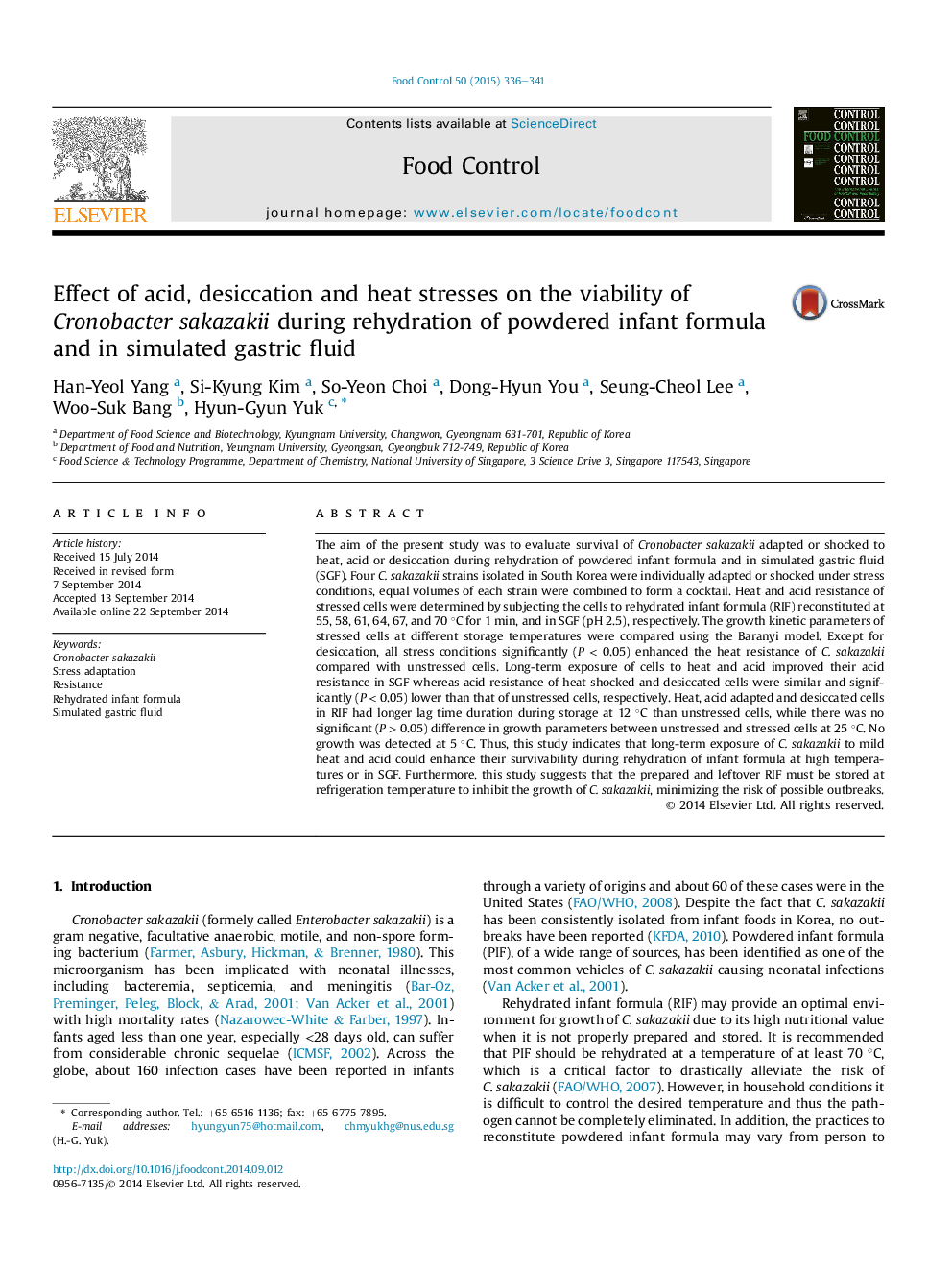| کد مقاله | کد نشریه | سال انتشار | مقاله انگلیسی | نسخه تمام متن |
|---|---|---|---|---|
| 6391017 | 1628412 | 2015 | 6 صفحه PDF | دانلود رایگان |
- Acid and heat adaptation enhanced Cronobacter sakazakii resistance to lethal conditions.
- Desiccated stress made cells more sensitive to lethal conditions.
- No cells survived rehydration of powdered infant formula at 64 °C.
- Stresses delayed cell's growth in rehydrated infant formula (RIF) at 12 °C.
- No bacterial growth was observed in RIF during storage at 5 °C.
The aim of the present study was to evaluate survival of Cronobacter sakazakii adapted or shocked to heat, acid or desiccation during rehydration of powdered infant formula and in simulated gastric fluid (SGF). Four C. sakazakii strains isolated in South Korea were individually adapted or shocked under stress conditions, equal volumes of each strain were combined to form a cocktail. Heat and acid resistance of stressed cells were determined by subjecting the cells to rehydrated infant formula (RIF) reconstituted at 55, 58, 61, 64, 67, and 70 °C for 1 min, and in SGF (pH 2.5), respectively. The growth kinetic parameters of stressed cells at different storage temperatures were compared using the Baranyi model. Except for desiccation, all stress conditions significantly (P < 0.05) enhanced the heat resistance of C. sakazakii compared with unstressed cells. Long-term exposure of cells to heat and acid improved their acid resistance in SGF whereas acid resistance of heat shocked and desiccated cells were similar and significantly (P < 0.05) lower than that of unstressed cells, respectively. Heat, acid adapted and desiccated cells in RIF had longer lag time duration during storage at 12 °C than unstressed cells, while there was no significant (P > 0.05) difference in growth parameters between unstressed and stressed cells at 25 °C. No growth was detected at 5 °C. Thus, this study indicates that long-term exposure of C. sakazakii to mild heat and acid could enhance their survivability during rehydration of infant formula at high temperatures or in SGF. Furthermore, this study suggests that the prepared and leftover RIF must be stored at refrigeration temperature to inhibit the growth of C. sakazakii, minimizing the risk of possible outbreaks.
Journal: Food Control - Volume 50, April 2015, Pages 336-341
